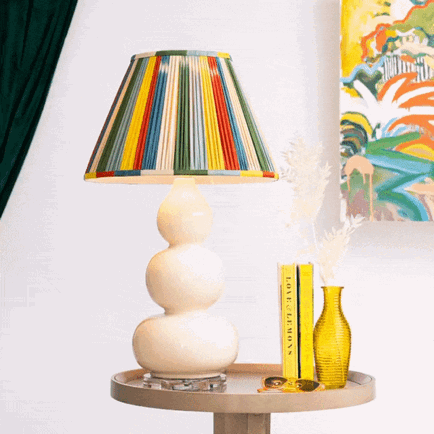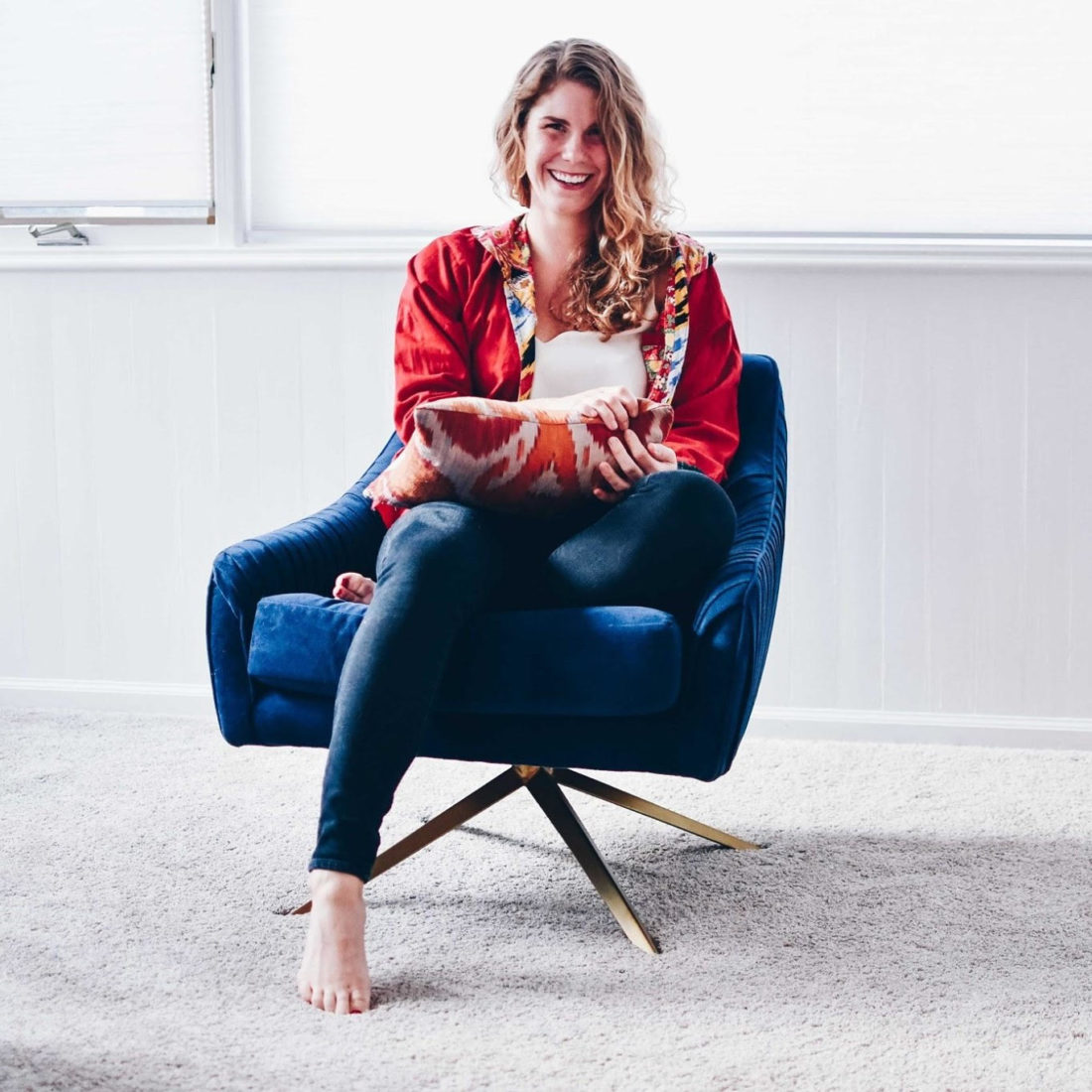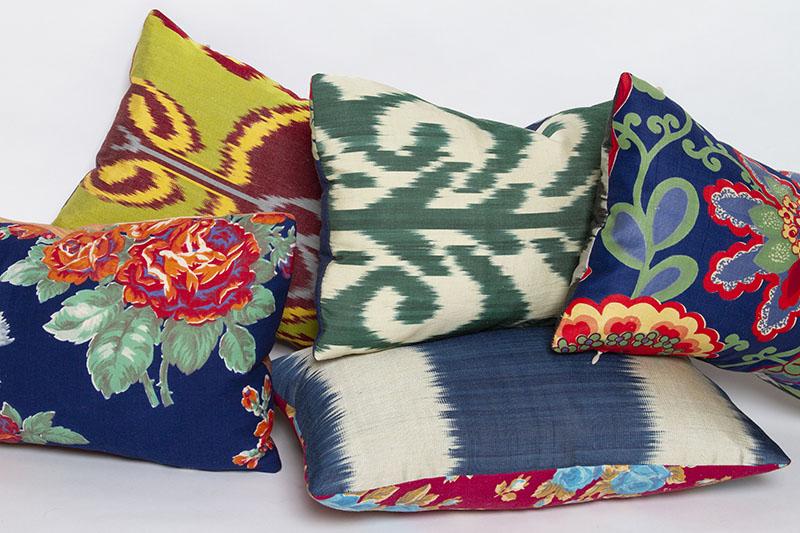For those of us lucky enough to be working from home, each day brings new worries, yes, but also room to daydream about making our new command centers as comfortable and beautiful as possible. Sometimes I look up from my laptop and imagine the lamp on my dining room sideboard, for instance, has been replaced by something a little happier, something that might cast a little more warmth into the room.

When that happens, my mind turns to the work of Mollie Nitzken of Slightly East in Atlanta. Nitzken creates lampshades for a living that are the opposite of beige: Each design gets made by hand using textiles from countries such as Turkey and Uzbekistan, particularly, from the latter, ikats—a type of weaving with a history that spans the globe and employs color combinations as bold as the imaginations of the artisans who make them. “Southerners have always been good at mixing,” says Nitzken, who grew up in Kentucky and got her professional start traveling to Turkey with the owner of the Louisville rug shop Canoe. “I think it’s because we buy and collect what we like; we don’t try to make everything ‘go’—a patterned shade really softens a room and makes it more homey.”

And while the majority of Nitzken’s work consists of custom orders, which take about three weeks to complete, she offers standard lampshade frames in five-inch, sixteen-inch, and eighteen-inch sizes as well. In February, she will begin stocking finished shades in a variety of sizes—something she’s excited about. “In the beginning of the pandemic, it was super slow,” she says. “I didn’t think we’d make it to the New Year. But we’ve been slammed since July. I think Southerners are really making their homes a sanctuary now.”
Nitzken also cautiously rolled out her first pillows, a collaboration with the New York City pillow purveyor Artemisia, this fall, and a new line of lamps with Louisville Stoneware is on its way, too. “I do remember a time when there was a wave of ‘greige’,” she says. “But thankfully that’s over and we’re getting back to our Southern eclectic roots.”








